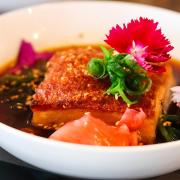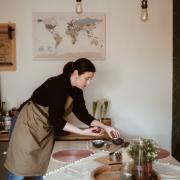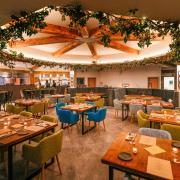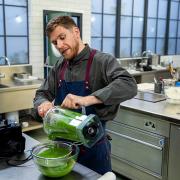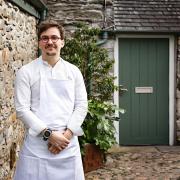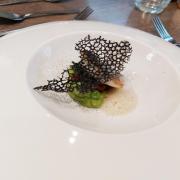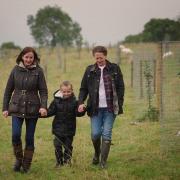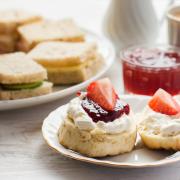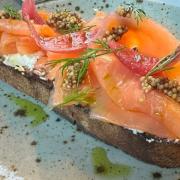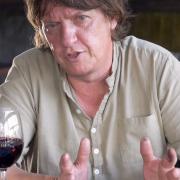Whatever the latest festive food fad, turkey is still the classic Christmas dinner and Lancashire has some of the finest producers.

The turkeys bred on John Atkinson’s Lancashire farm have many special qualities but their acting skills are probably the most surprising.
Dedicated fans of the Scottish detective drama Taggart may recall an episode when DI Robbie Ross wakes up naked in a barn full of the birds. These 150 turkeys were among TV’s most unusual extras and were hired for the day from Yeomans Farm at Briercliffe, high on the moors above Nelson.
They didn’t quite make the Bafta shortlist but John’s birds continue to play a major role centre stage in Christmas feasts across North West.
For many families, picking up the Christmas turkey from Yeomans Farm is a holiday tradition passed on through generations which has lasted for decades.
John has taken over from his father who started with poultry in the 70s by selling a few turkeys to friends and a few local butchers. They were so good that growing demand meant that what had been a sideline became a mainstay. John, who grew up on Yeomans farm, says: ‘I can’t remember a Christmas here without the birds. December has always been hectic and ruled by turkeys.’
The bird originated in the Americas, where it was domesticated by the Mayans in Mexico for its feathers and meat. They were first brought to England by the British navigator William Strickland in 1550. They must have caught on quickly for 50 years later, in Twelfth Night, Shakespeare speaks of ‘a turkey cock in his pride and proper.’
At Yeoman’s farm, turkeys take over much of daily business beginning in June, when the day-old hatchlings are delivered from an Essex supplier used for more than four decades.
The birds will vary in size, with larger specimens being favoured by butchers who sell portions, with families more likely to choose a more manageable size. Atkinsons keeps a ledger and, if a customer calls to ask for the ‘same as last year’, John knows exactly what they’re looking for.
On offer are white turkeys as well as bronze and Norfolk blacks, all known for different meat texture. The birds enjoy their barn’s shelter when the wind whistles across the moors, but get to go outside as free-roaming fowl, sometimes startling cyclists as they whizz past.
‘They get fresh air, plenty of room and a balanced diet,’ says John. Almost a third of their diet consists of oats with the feed purchased from another family run company.
‘We keep things as natural as we can,’says John, who uses heating lamps for the first 48 weeks of the their lives. Ninety per cent are female because the males simply get too big. Occasionally a caterer would like a 40 pounder, but these orders are as rare as free-range turkey farms have become in the UK.
December means all hands on deck at Yeomans. When the fowl is plucked, the carcass is strung up with the innards still inside the body. This gives the meat more flavour, makes it more tender and easier to cook. An average season sees up to 1,200 turkeys leave Yeomans farm. Almost all their customers hear about them by word of mouth.
The Atkinsons have lost some clients over the years as local butchers have closed under pressure of competition from the big supermarkets. John knows well that times are changing. ‘Many families go out for Christmas now or the parents, who used to buy their turkeys from us, join their kids for the holidays, and often they have moved away,’ he says.
But he’s determined to keep going and hopes the next generations can carry on the family trade.
What works in the Atkinsons’ favour is the country’s obsession with food programmes on television. ‘People are looking for a better product. We’re all foodies now and you can certainly taste the difference in meat between a free-range turkey and a cellophane packed bird from the supermarket. It’s like chalk and cheese.’ There is one thing beyond his control. ‘The final result,’ he admits ‘depends on the cook.’




